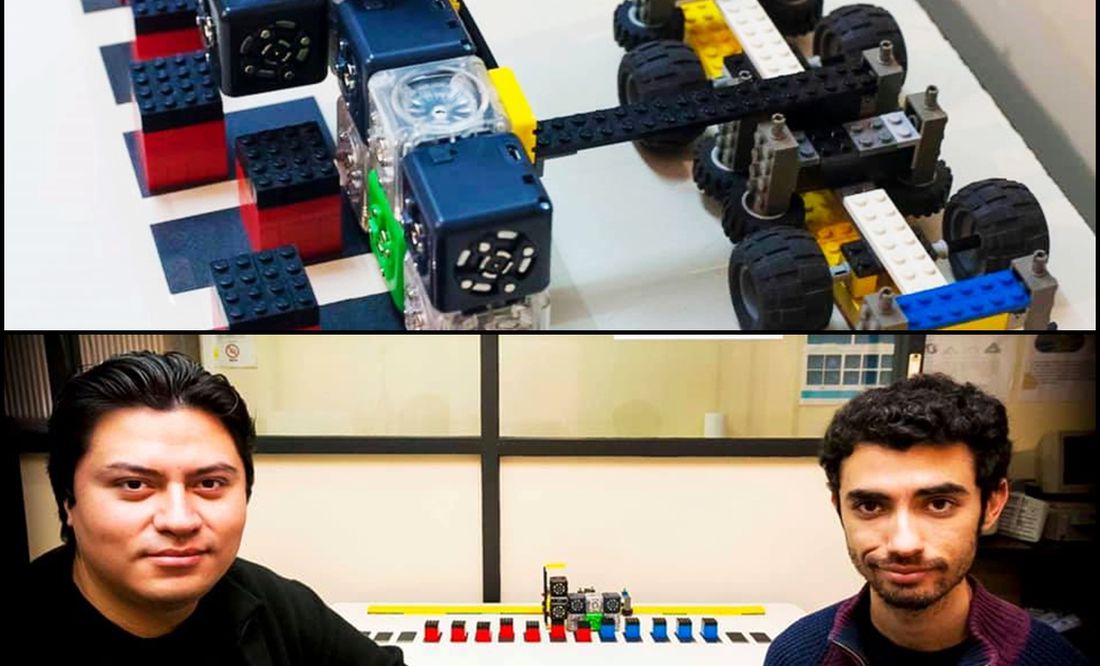Más Información
Ricardo Quezada and Daniel Ayala
, along with their teacher Genaro Juárez , from the Superior School of Computer Sciences at the National Polytechnic Institute (IPN) , have built a machine made out of Lego blocks meant to help facilitate learning of mathematics, computer skills, and programming among children.
The students and teacher presented the project in Japan during the 24th International Symposium on Artificial Life and Robotics , where international experts described it as “the first machine of its kind at the international level.”
The main attraction of the robot is that it can make visual representations of abstract concepts involving mathematics, computer science, and programming, making them easier for students to understand.
The robot works with Cubelets , construction toys manufactured by Modular Robotics to teach children about robotics and programming.
The machine renders graphic representations of computer systems based on a binary language. It consists of a cardboard strip divided into segments and a head made out of Lego bricks and Cubelets. The head pans left or right of the strip through movement sensors that allow the robot to move based on binary indications (zero or one), depending on the program’s instruction.
The young men from the IPN also attached a rail with a small cart connected to the robot’s head to improve the sensors’ accuracy.
“The Turing machine is a tool through which mathematicians may represent a series of steps to carry out specific tasks. It is an abstract theoretical concept that has applications in many fields,”
stated Ricardo Quezada.
Doctor Genaro Juárez pointed out that the machine was a result of his students’ creativity and wit, which have now gained the recognition of experts from all around the world.
dm



/cloudfront-us-east-1.images.arcpublishing.com/eluniversal/C25ROOV4HFEIHMGUWCDGW2HEPU.jpg)
/cloudfront-us-east-1.images.arcpublishing.com/eluniversal/6JSZKO7RK5CBPCNP2Z7EGXOTBU.jpg)
/cloudfront-us-east-1.images.arcpublishing.com/eluniversal/SJYSCKOHGJCNHFDW2ZRXXUAPQU.jpg)
/cloudfront-us-east-1.images.arcpublishing.com/eluniversal/V5LUK7ETZZAFJE2XRYCMQUSKJI.jpg)

